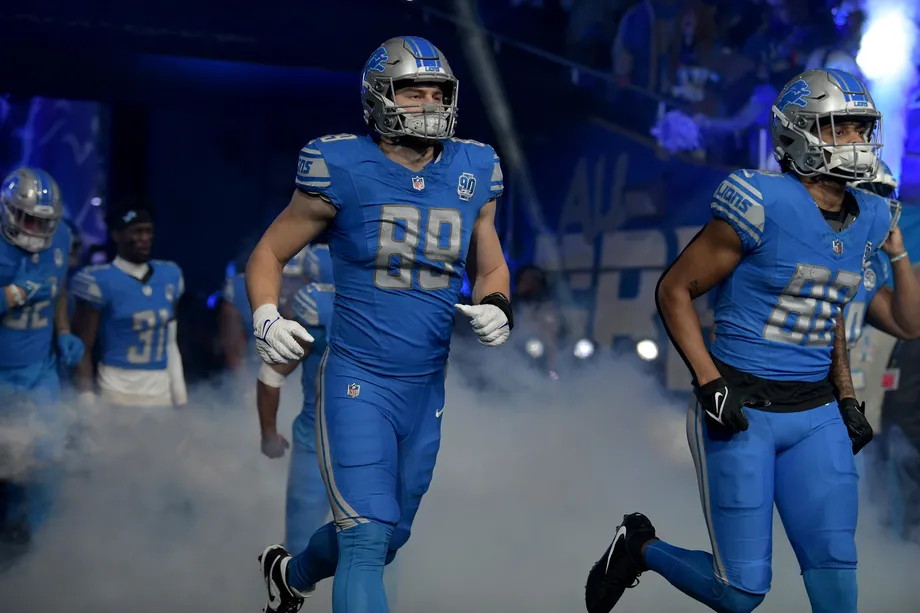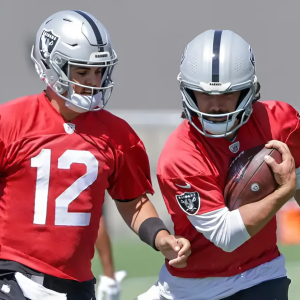They Detroit Lions have a bit of a conundrum on their hand. After placing a restricted free agent tender on tight end Brock Wright (worth one year, $2.985 million), the San Francisco 49ers came in and offered Wright a potentially much better deal. The 49ers gave Wright a three-year, $12 million offer sheet, which the tight end promptly signed.

But because the Lions placed the RFA tender on Wright, they now have the opportunity to match that offer and sign him back to Detroit on those terms. They have until Wednesday to make that decision.
Wright has been a key player for the Lions over the past three seasons. While some may undervalue the importance of a TE2, Detroit utilizes a second tight end more often than the average team. Wright has logged over 1,000 offensive snaps over the past two years, and he’s finished in the top 10 in Lions special teams snaps in each of the past two seasons.
So what should the Lions do?
Should the Lions match the 49ers’ offer for Brock Wright?
My answer: It’s complicated.
First we need to acknowledge what we don’t know in the situation. We don’t know exactly how this contract is framed. Three years, $12 million sounds like a lot—and we also know, per Adam Schefter, that there is $6 million guaranteed in this deal. But what if the deal looked like this?
Brock Wright: three years, $12M, $4.5M signing bonus
2024: $1.5M salary (all guaranteed), $1.5M signing bonus proration: $3M cap hit
2025: $2M salary, $1.5M signing bonus proration: $3.5M cap hit
2026: $4M salary, $1.5M signing bonus proration: $5.5M cap hit ($1.5M in dead cap if cut)
Granted, this is just a mock up of what the contract could look like, but is this really that much more than what the Lions offered? It would essentially operate as a two-year, $8 million deal, because he likely wouldn’t see the final year of that contract. So that would result in $8 million in cap hit spread out over three years ($3M, $3.5M, $1.5M). If this was the case, I think the Lions would be wise to match this.
We also don’t really know what the Lions think of James Mitchell. Due to injuries, Mitchell has played just 340 snaps in his two career seasons and that’s hardly enough to evaluate his potential from outside of the building. If Detroit truly thinks Mitchell has developed enough—particularly as a blocker—they should consider moving on. In that case, Sam LaPorta, Mitchell, and Shane Zylstra is a perfectly fine trio. But Mitchell’s game required a lot of refinement in run blocking, and that’s absolutely key to the TE2 role. If he’s not close to what Wright offers, Detroit needs to proceed carefully.
Of course, many of you will say, “just draft one.” And, sure, that would make some sense. You get cheaper and younger at the position. But what do we know about how Brad Holmes operates in the offseason? He does not like to go into the draft having to draft a specific position. Not to mention, there aren’t many college tight ends that are capable of jumping to the next level and thriving as a blocker right away.
Free agency is another option. $3-4 million a year is a hefty price for a TE2, and you could likely find a cheaper option out there. But now that we’re already three weeks into free agency, are there really that many capable options?
So if the contract looks like the one I outlined above, and Detroit is still uncomfortable giving Mitchell a bigger role, I think Detroit should consider matching the 49ers’ offer.
Let’s hear what you think. Vote in the poll below, then scroll down to the comment section and explain your pick.




